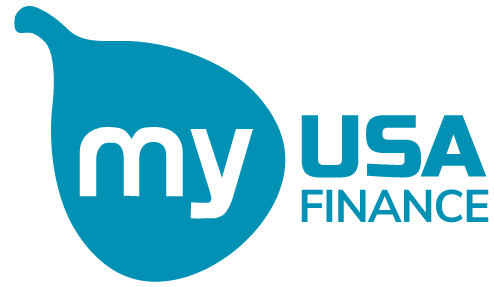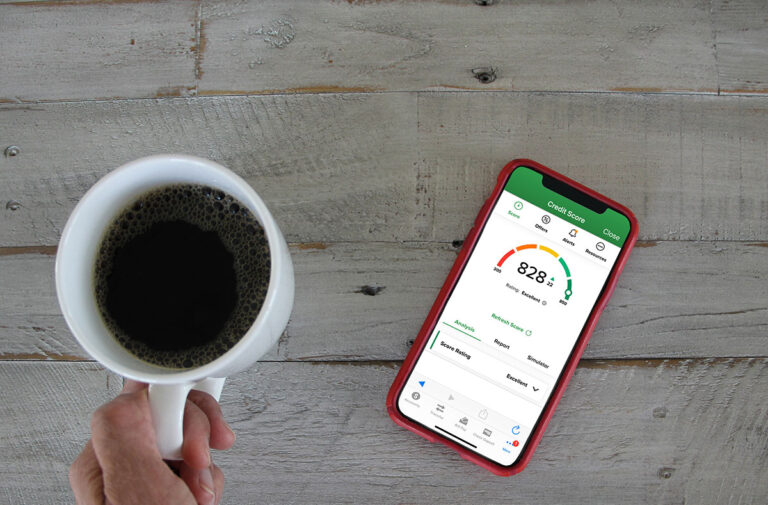Fair credit refers to a credit score that falls within the range of 580 to 669. If you have fair credit, getting a personal loan can be challenging, especially compared to those with good or excellent credit scores.
While fair credit may not be ideal, it’s possible to get a personal loan with fair credit, and there are several ways you can work on improving it before applying for a personal loan.
Lenders assess your creditworthiness when you apply for a personal loan by checking your credit score, which ranges from 300 to 850. Securing a personal loan with fair credit may require additional effort, but it is possible.
In This Article:
- What is a Fair Credit Score?
- How Does Fair Credit Affect Personal Loan Approval?
- How to Increase Your Credit Before Applying?
- How to Get a Personal Loan with Fair Credit
- Where to Get a Personal Loan with Fair Credit
- Fair Credit Loan Approval Tips Applying for a Personal Loan with Fair Credit
- Alternatives to Personal Loans
- FAQ’s – How to Get a Personal Loan with Fair Credit
Looking for a Personal Loan?
Explore your options today!
What is a Fair Credit Score?
A fair credit score is between 580 and 669. If your credit score falls within this range, getting approved for a loan may be more difficult, but it’s not impossible.
How Does Fair Credit Affect Personal Loan Approval?
Several factors can impact your loan terms and borrowing experience when applying for a personal loan with fair credit. Here’s what you can expect when seeking a personal loan with fair credit:
- Higher Interest Rates: A fair credit score can lead to higher interest rates than those with good or excellent scores. Good credit can result in rates as low as 13.5 to 15.5 percent, while scores between 630 to 689 usually get rates of 17.8 to 19.99 percent.
- Higher Fees: Personal loan origination fees are common, and those with fair credit may have to pay more than those with better credit scores.
- Shorter Payment Period: If you have fair credit, lenders may give you a shorter loan term. A shorter payment period can save you money on interest costs and allow you to repay the loan faster, but it also results in higher monthly payments. If you have a shorter repayment period, be sure that you can easily manage a higher monthly payment without any financial strain.
- Lower Loan Limits: Those with fair credit scores may have more difficulty obtaining larger loans. Make sure that the loan amount offered fits your financial needs and determine whether it’s adequate.
How to Increase Your Credit Before Applying
If you want to increase your chances of receiving a personal loan with favorable terms, improving your credit score first is a good idea. A higher credit score can mean more borrowing options and lower borrowing costs because you are eligible for lower interest rates.
By following these three key steps, you can boost your credit score effectively:
Make Timely Payments
Paying your bills on time is crucial for maintaining a good credit score, accounting for 35% of your FICO score. It’s important to stay current on all payments and work towards catching up on past-due accounts.
Consistently meeting payment deadlines demonstrates responsible financial behavior and positively impacts your credit history.
Pay Down Debt Balances
Your credit utilization rate, which is the amount of revolving credit you’re using, contributes 30% to your FICO score. Credit utilization rates of around 30% or lower are ideal.
Reducing your debt balances lowers your credit utilization ratio and improves your creditworthiness. Focus on paying off existing debts to create a healthier financial profile.
Keep Old Accounts Open
Credit age is another crucial factor in the FICO score calculation, accounting for 15%. The longevity of your credit accounts demonstrates stability and reliability to lenders, positively influencing your credit score.
Maintaining old credit accounts in good standing is beneficial, even if you only use them for minimal expenses. Avoid closing old accounts unless necessary.
How to Get a Personal Loan with Fair Credit
If you have fair credit and want to get a personal loan, there are specific steps you can take to make the application process easier. Here’s what you need to do:
Determine How Much You Can Borrow
Before applying for a personal loan, assess your financial needs and determine how much you can comfortably borrow.
Check Your Credit
Knowing your credit is essential before applying for a personal loan. Check your credit score to understand where you stand.
If your credit score falls on the lower end of the fair credit spectrum, consider strengthening your approval odds by bringing a co-signer on board. A co-signer with a stronger credit profile can enhance your chances of qualifying for more attractive loan terms.
Get Pre-qualified
To gauge your likelihood of approval and avoid unnecessary hard inquiries, get prequalified online with the lenders you’re considering. Pre-qualification estimates the loan offer you may receive without undergoing a hard credit check.
By comparing prequalified offers, you can assess which lender is most suitable for your needs.
Shop Around for Loans
When you receive prequalified offers from lenders, take the time to evaluate them carefully. Look for the option that best meets your needs regarding loan terms and rates. If the offers don’t align with your needs, consider looking into other lenders.
Apply for a Loan
Complete the loan application thoroughly once you’ve identified the lender and loan offer that best fits your needs. Double-check for any errors or missing information and ensure you upload any required documents. By submitting a complete and accurate application, you can avoid inadvertent denial and expedite the approval process.
Where to Get a Personal Loan with Fair Credit
When it comes to personal loans with fair credit, explore various options to find a lender who understands your situation:
Banks and Credit Unions
Traditional financial institutions such as banks and credit unions may offer personal loans to individuals with fair credit. Visit local branches or check their websites to learn about their loan products.
Online lenders
Online lenders have become increasingly popular due to their streamlined application processes and quick approvals. Some online lenders specialize in providing loans to individuals with fair credit. Research different online lenders and compare their rates and terms.
Peer-to-peer lending platforms
Peer-to-peer lending platforms connect borrowers directly with individual investors. These platforms often consider other factors alongside credit scores, making them a viable option for those with fair credit. Explore reputable peer-to-peer lending platforms and assess their loan offerings.
Fair Credit Loan Approval Tips: Proactive Steps
While fair credit may pose some challenges, you can take proactive steps to improve your chances of securing a personal loan:
Build a Positive Credit History
Consistently making on-time payments and reducing credit card balances can positively impact your credit score. Focus on building a positive credit history by paying bills promptly and avoiding new debt.
Paying Down Existing Debts
Lowering your debt-to-income ratio can enhance your creditworthiness. Consider paying down existing debts before applying for a personal loan, as it can improve your overall financial profile.
Securing a Co-signer
If you have a trusted friend or family member with good credit, consider asking them to co-sign your loan. A co-signer with a stronger credit profile can help you qualify for better loan terms.
Providing Collateral
While most personal loans are unsecured, some lenders may be willing to offer secured loans if you can provide collateral. Collateral reduces the lender’s risk and increases your chances of approval. However, remember that you risk losing the collateral if you default on the loan.
Applying for a Personal Loan with Fair Credit
When you’re ready to apply for a personal loan, follow these steps:
Gather the Necessary Documents
To process your loan application, lenders usually need specific documents such as proof of income, bank statements, identification, and proof of residence. You can speed up the application process by gathering these documents beforehand.
Compare Loan Offers
Obtain loan offers from different lenders and compare them based on interest rates, repayment terms, and overall affordability. Consider online and offline lenders to ensure you find the best fit for your needs.
Apply Online or In Person
Choose the application method that suits you best. Many lenders offer online application processes, allowing you to apply conveniently from home. Alternatively, you can visit local branches and apply in person.
Alternatives to Personal Loans
If securing a personal loan proves challenging, consider these alternatives:
Credit Cards
A credit card may be suitable if your financial needs are smaller. Compare credit cards with favorable terms and interest rates, and use them responsibly to build or improve your credit history.
Home Equity Loans or Lines of Credit
If you own a home, you can leverage your home equity through a loan or line of credit. These options often have lower interest rates but require collateral, putting your property at risk if you default.
Borrowing From Friends or Family
Consider borrowing from trusted friends or family members who may be more flexible with loan terms. However, remember to treat this as a formal financial transaction and uphold your repayment obligations.
Get A Personal Loan With Fair Credit
A personal loan with fair credit is achievable with proper preparation and research. Assess your credit situation, compare loan offers, and consider alternative options. Following the steps outlined in this article can increase your chances of securing a personal loan that meets your needs.
Looking for a Personal Loan?
Explore your options today!
FAQ's - How to Get a Personal Loan with Fair Credit
Yes, it is possible to get a personal loan with fair credit. While it may be more challenging, many lenders cater to individuals with fair credit scores. Explore various lenders and compare their loan offerings to find the best fit for your situation.
Improving your credit score is a gradual process that depends on various factors. It may take several months or even years to see significant improvements. Consistently practicing responsible credit habits, such as paying bills on time and reducing debt, can help improve your score.
Like any loan, there are risks associated with personal loans. You may face higher interest rates and potentially less favorable terms with fair credit. It’s essential to carefully assess your ability to repay the loan and consider the potential impact on your financial situation.
Yes, personal loans can be used for debt consolidation purposes. Consolidating high-interest debts into a single loan with a lower interest rate can simplify your payments and save you money. However, evaluating the overall cost is crucial and ensuring you can comfortably manage the loan payments.
Defaulting on a personal loan can have serious consequences, including damage to your credit score and potential legal action from the lender. It’s important to make loan payments on time and communicate with your lender if facing financial difficulties. Seeking professional financial advice can help you navigate challenging situations and explore potential solutions.











